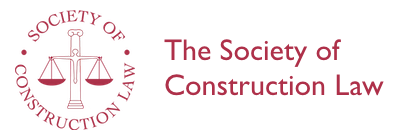The Rise and Rise of Time-bar Clauses for Contractors' Claims: Issues for construction arbitrators
Hamish Lal
September 2007
A paper based on that awarded the inaugural Norman oyce Prize by the Society of Construction Arbitrators, given to a joint meeting of the Society of Construction Law and the Society of Construction Arbitrators in London on 5th June 2007.
Where a construction contract includes a clauseimposing a time-bar on claims by the building contractor, what effect doesfailure to lodge (or notify) a claim within the time-limit have? Hamish Lal notes that such clauses arebecoming more common - notably in the FIDIC 1999 suite and NEC3 - and that thelaw applicable is not clear. Some courtshesitate to treat a time-bar clause as a condition precedent to a valid claim;others hold that a time-bar is inapplicable if the building contractor isentitled to make a claim for delay or disruption caused by the employer ('the preventionprinciple'). Lal argues that both theFIDIC and NEC3 time-bar clauses probably take effect as conditions precedent toa claim; and that to disapply what the parties have agreed by invoking 'theprevention principle' is unjustified in both fact and law; on 2007 TCCauthority, it does not prevent the application of a clear time-bar clause inEngland.
Introduction- The rise of time-bar clauses in standard forms - Methods of challengingtime-bar clauses - The proper approach to time-bar clauses - Conclusion:freedom of contract the real issue.
Theauthor: Dr Hamish Lal is a solicitor-advocate and partner,practising construction, engineering and project finance law, at Dundas &Wilson LLP.
Text 19pages.
PDF file size: 225k
